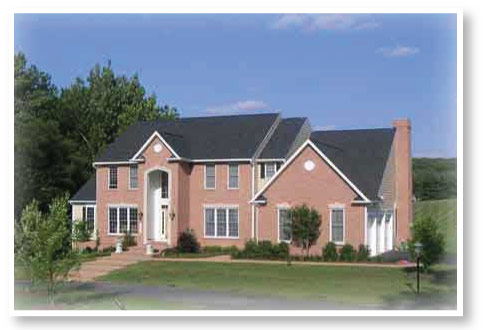Real Estate Investment: Return On Investment and Cash Flow Calculation
Real Estate Investment Articles | Housing Market News and AnalysisManage Investment Risk
Like any other investment in the world, real estate investment involves risks. If not proper managed, it can lead to great investment disaster. Luckily, there're some strategies investor can use to reduce these risks.
Use Less Leverage
The largest risk in real estate investment comes from leverage. While properly used leverage can help investors maximize their return on investment, it also brings great risk. For example, investor A bought a rental property at $110,000 with cash and rented it out for $1,200/month with cost of $400(tax, insurance and HOA) . Assume there's another investor B who bought exactly the same rental property with 5% down and 95% mortgage. Nonetheless, the $1,200 monthly rent would covers his costs of $1,150(mortgage $750 + $400). Then it comes economic down turn, the property value doesn't go up and the rental price goes down to $1,000. While investor A still manages to achieve a positive cash flow, investor B is losing money at $150/month. If invest B sell it now, the house can't sell more than the mortgage amount. He either has to come up with cash to pay back bank or waiting for foreclosure. If he doesn't sell, he will lose money every moenth and nobody knows when the bleeding stops. This situation happened to B because he used a very high level of leverage. Let's say if he paydown 30% and borrow 70% so the mortgage payment is reduced to $500/month. When rental price goes down to $1,000, with a cost of $900 he still can afford to wait out the down turn.
Here's the table of the 10 year cash flow using our All-in-One Real Estate Investment Calcaultor
Click on image for larger graph in new window.
From the picture, you can see, without rent increase, the house can bleed for 10 years which is an investor's nightmare.
Use less leverage is just one way to control risk. There're other strategies that can also effectively control real estate risk.
Buy Below Market Price Property
Spending time to locate a property that's priced below market is usually well worthy the effort. Such a property puts you far ahead and reduces the risk in case any market downturn happens.
Positive Cash Flow
A rental property is a business and positive cash flow is critical. You may get away with making money by speculation, but once market condition changes, you could lose all the money that you earned in one deal. With positive cash flow, you can easily weather any market condition and is the best way to reduce investment risk.
Evaluate Real Estate Property Price
The long term real estate price can be valued by rental and income. Like a stock is normally valued by P/E ratio, the real estate can also be valued by price-to-earning. While real estate prices can fluctuate in the short run, in the long run, property prices are significantly driven by rental values. If you look at the “Price-to-earnings” ratio of your property, you can learn about your home’s true value. Nationwide, the long term "Price-to-earning" ratio is around 14. If your property is around that range, then you paid fair price. Otherwise, it maybe a bubble in the making. However, real estate value varies widely in different areas. In "hot" areas like New York, Boston and San Francisco, the ratios are always higher than other areas. You need to check out the local historical data to determine a fair price for those areas. If an area's current ratio is way too high, it's probably not a good time to buy real estate in that area then. The articleEvaluate Housing Price has a detailed description on this topic.
Improve a Property to Increase Profit
If you have time, find properties that you can make improvement to increase the equity. Buy those properties at low prices and improve tem. These kinds of properties usually generate a better cash flow and by the time of selling, you can realize a greater profit.
The key is to understand the risks and then properly manage them. Do a careful calculation with scenario analysis or worst case analysis. Ask yourself questions like "what if I am out of job for half a year, do I have enough cash reserve to cover all the cost?" "What if my property is vacant for 3 or 4 months, can I handle the expense?" " What if the rent goes down 15%, can I still keep even?". If you have carefully studied all the scenarios, you are ready to jump into real estate investment.
Aware of All the Expenses of Real Estate
Besides mortgage, real estate has a lot other expenses. Sometimes, those expense are even more than mortgage payment. Identifying every expense that may occur to you is important for your real estate investment to be successful.
- Property Tax - Property tax can vary widely in different states and cities. In some cities, the rental property incurs a higher tax than primary residence. Check with local cities to get a good estimate.
- Insurance - Insurance varies widely too in different areas. In flood areas, insurance runs very high. Rental insurance is different than primary resident insurance and is usually higher.
- HOA - Home Owner Association fee for condominium is much higher than for house. Some HOA rules prevent condominium from being rented out. Get the whole book of HOA before buying.
- Maintenance - A certain amount of money allocated for repair and regular maintenance of the house. Maintenance is higher for an older house and relative lower for a newer house depends on the house condition.
- Vacancy Rate - Vacancy is something that should be considered when buying a rental property. Usually one month vacancy is expected for each year. In some areas, it will be higher whenever there's a tenant turn around.
- Realtor Fee - If you rent out through realtor, realtor will charge 1~1.5 month rent for service. It's a one time charge and depends on the frequency of tenant turn around.
- Management Fee - If you want a complete passive investment and hire a management company, they charge monthly 8-15% management fee.
There're also other risks involving real estate transaction beside finance. Work with local professional realtors or lawyers to get more advices.
Latest News and Articles

Investor's Resources Center
Check house price
Search homes
Free landlord forms
Tenant credit screen
Foreclosure Search
www.foreclosure freesearch.com
www.freeforeclosure database.com


